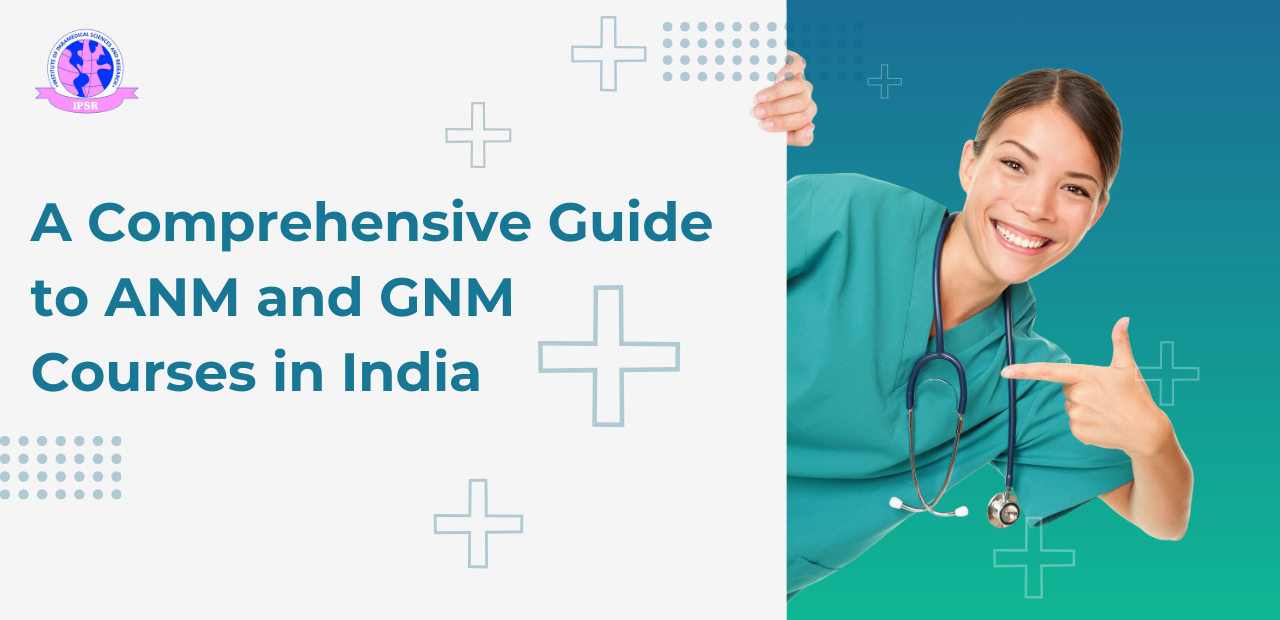agarwal.prashant96@gmail.com
- Posted on
- No Comments
A Comprehensive Guide to ANM and GNM Courses in India
The Healthcare Sector In India Is Evolving Rapidly, Creating A High Demand For Skilled Healthcare Professionals, Especially Nurses. Auxiliary Nurse Midwifery (ANM) And General Nursing And Midwifery (GNM) Are Two Pivotal Nursing Courses That Prepare Students For A Career In Nursing. This Comprehensive Guide Delves Into The Details Of These Courses, Including Their Structure, Eligibility, Scope, And Career Prospects.

What is ANM?
Auxiliary Nurse Midwifery (ANM) is a diploma course that focuses on the fundamental aspects of nursing and midwifery. ANMs are primarily trained to assist in maternal and child healthcare and are an integral part of the rural healthcare system in India.
Course Duration: The ANM course typically spans two years, including six months of internship.
Eligibility Criteria:
- Candidates must have completed 10+2 in any stream (preferably with science subjects) from a recognized board.
- The minimum age for admission is 17 years, and the maximum age is usually around 35 years.
- Some institutions may require a minimum aggregate score in the 10+2 examination.
Curriculum:
The ANM course covers subjects such as:
- Community Health Nursing
- Health Promotion
- Primary Healthcare Nursing
- Child Health Nursing
- Midwifery
- Health Centre Management
The curriculum also includes practical training, which is crucial for developing hands-on skills.
What is GNM?
General Nursing and Midwifery (GNM) is a more advanced diploma course designed to prepare students for a wide range of nursing responsibilities in hospitals and other healthcare settings.
Course Duration: The GNM course duration is three and a half years, including six months of internship.
Eligibility Criteria:
- Candidates must have completed 10+2 with science subjects (Physics, Chemistry, Biology) and English from a recognized board.
- A minimum aggregate score (usually around 40-50%) is required.
- The age limit for admission typically ranges from 17 to 35 years.
Curriculum:
The GNM course covers a broader and more in-depth range of subjects compared to ANM, such as:
- Anatomy and Physiology
- Microbiology
- Psychology
- Medical-Surgical Nursing
- Child Health Nursing
- Mental Health Nursing
- Midwifery and Gynaecological Nursing
- Community Health Nursing
Similar to ANM, GNM also includes extensive practical training, which is essential for gaining real-world experience.
Differences Between ANM and GNM
Scope of Practice:
- ANM: Focuses primarily on maternal and child healthcare, and works mainly in rural healthcare settings.
- GNM: Offers a broader scope, allowing nurses to work in various departments of hospitals and other healthcare facilities.
Course Content:
- ANM: Basic nursing care, midwifery, and community health.
- GNM: Comprehensive nursing care, including medical-surgical, pediatric, psychiatric, and community health nursing.
Career Opportunities:
- ANM: Job roles include Community Health Worker, Health Visitor, and Basic Health Worker.
- GNM: Wider job prospects, including roles like Staff Nurse, Nursing Tutor, ICU Nurse, and Home Care Nurse.
Admission Process
The admission process for both ANM and GNM courses typically involves:
- Entrance Exams: Some states and institutions conduct entrance exams for admission to ANM and GNM courses. These exams test the candidate’s knowledge in subjects like Biology, Chemistry, Physics, and English.
- Merit-Based Admission: In some cases, admissions are based on the marks obtained in the 10+2 examination.
- Counseling: Post the entrance exam or merit list, candidates may need to undergo a counseling process where they choose their preferred institution based on their rank and availability of seats.
Career Prospects and Job Roles
ANM Graduates:
- Community Health Worker: ANMs often work in rural areas, providing basic healthcare services and promoting health education.
- Health Visitor: They assist in maternal and child healthcare, including immunization and antenatal care.
- Home Nurse: ANMs can work as home nurses, providing basic nursing care to patients at home.
GNM Graduates:
- Staff Nurse: GNM graduates can work as staff nurses in hospitals, providing comprehensive nursing care to patients.
- Nursing Tutor: With additional qualifications, GNM graduates can become nursing tutors, teaching and training future nurses.
- ICU Nurse: Specializing in intensive care, GNM graduates can work in ICUs, caring for critically ill patients.
- Home Care Nurse: They can also work as home care nurses, providing specialized nursing care to patients at home.
Higher Education and Specialization
Both ANM and GNM graduates have the opportunity to pursue higher education to advance their careers. Some of the options include:
For ANM Graduates:
- GNM Course: ANM graduates can enroll in the GNM course to gain more comprehensive nursing training.
- Specialized Nursing Diplomas: Short-term specialized nursing courses in areas like midwifery, community health, and child health.
For GNM Graduates:
- Bachelor of Science in Nursing (B.Sc. Nursing): A four-year undergraduate degree that provides advanced theoretical and practical knowledge.
- Post Basic B.Sc. Nursing: A two-year program for GNM graduates to upgrade their qualification to a degree level.
- Master of Science in Nursing (M.Sc. Nursing): A two-year postgraduate program that offers specialization in various nursing fields such as medical-surgical, pediatric, psychiatric, and community health nursing.
Salary Expectations
ANM Graduates:
- Entry-level salaries for ANM graduates range from INR 10,000 to INR 15,000 per month.
- With experience, ANMs can earn up to INR 25,000 per month, depending on the job role and location.
GNM Graduates:
- Entry-level salaries for GNM graduates typically range from INR 15,000 to INR 25,000 per month.
- With experience and additional qualifications, GNM graduates can earn between INR 30,000 to INR 50,000 per month or more.
Challenges and Rewards
Challenges:
- Workload: Nurses often face a high workload and long working hours, which can be physically and emotionally demanding.
- Stressful Environment: Working in healthcare, especially in critical care units, can be stressful due to the high stakes involved.
Rewards:
- Job Satisfaction: Nursing is a highly rewarding profession, providing the satisfaction of making a difference in patients’ lives.
- Career Stability: With the growing demand for healthcare professionals, nursing offers excellent career stability and opportunities for growth.
- Personal Growth: The profession offers continuous learning and personal development, as nurses regularly update their skills and knowledge.
Conclusion
ANM and GNM courses are crucial stepping stones for anyone aspiring to enter the nursing profession in India. They provide comprehensive training and open up various career opportunities in the healthcare sector. Whether you choose ANM or GNM, both paths offer the chance to make a significant impact on people’s lives and contribute to the nation’s healthcare system. With dedication and passion, a career in nursing can be both fulfilling and prosperous.



